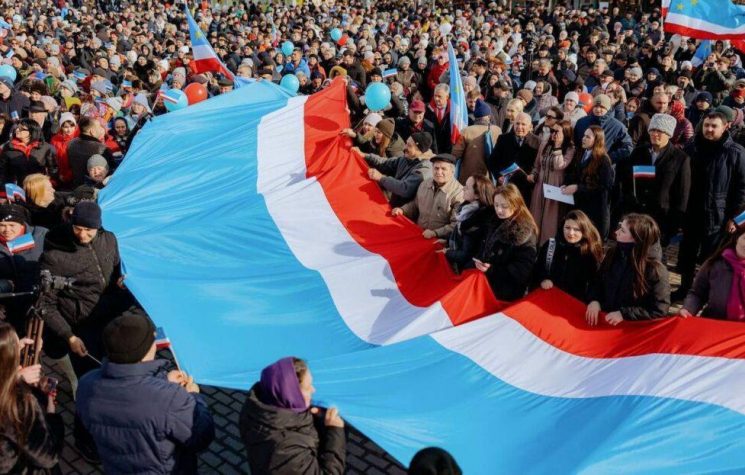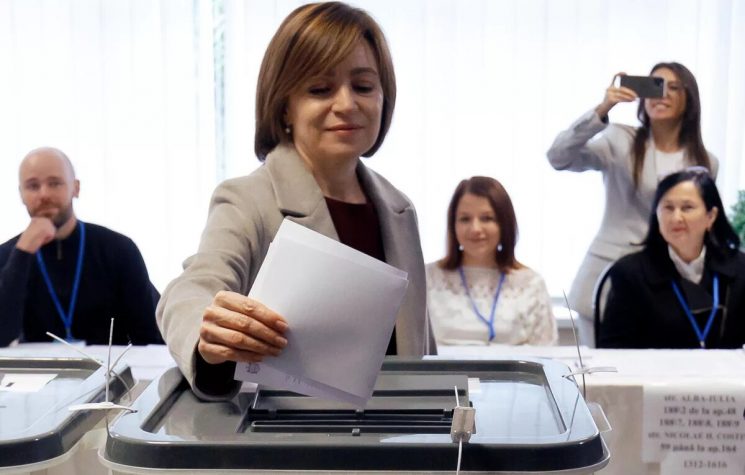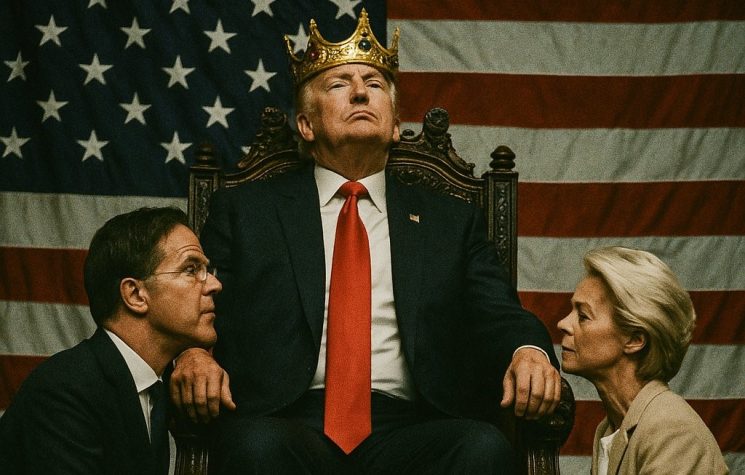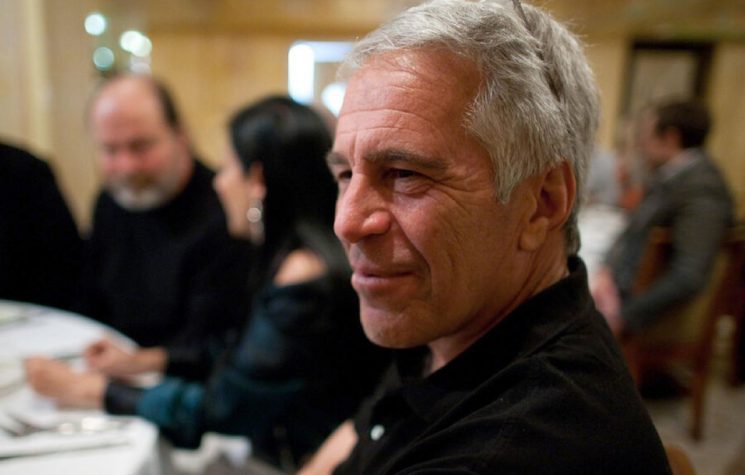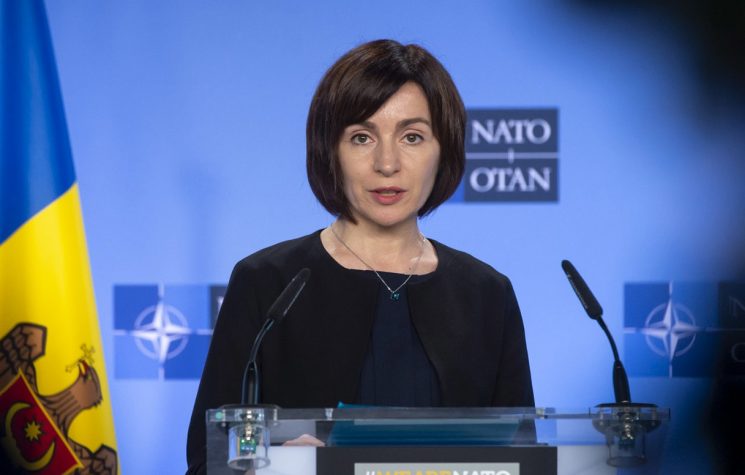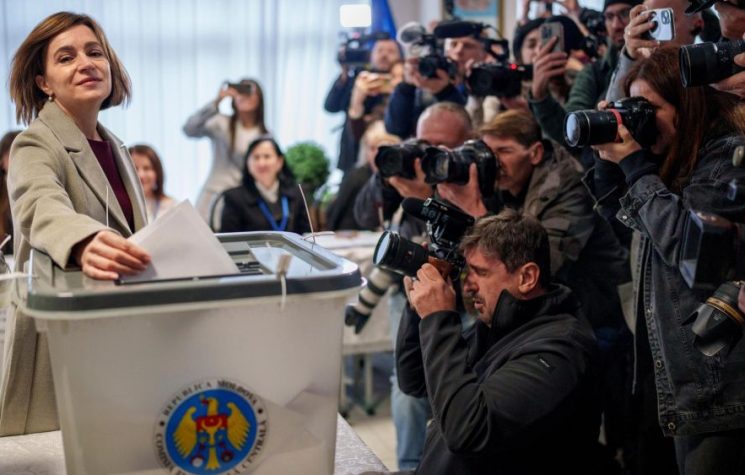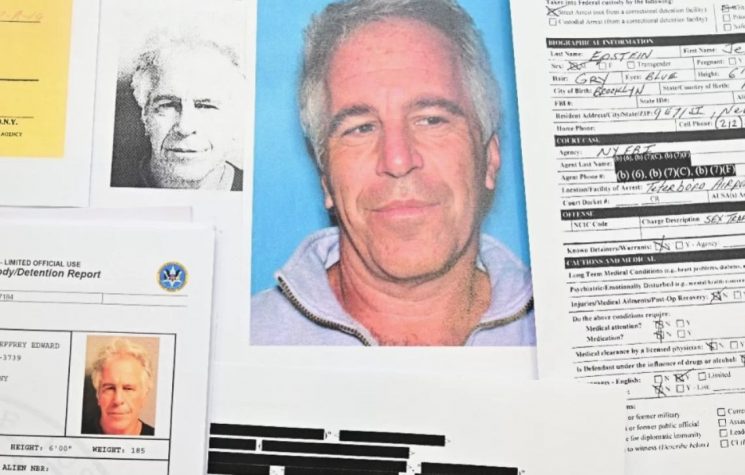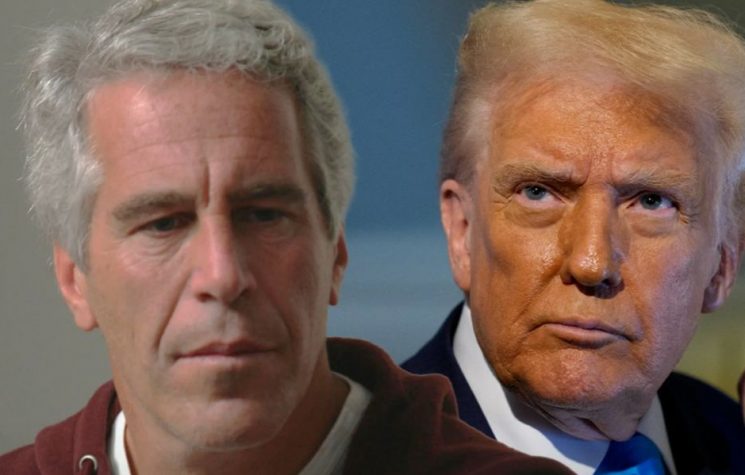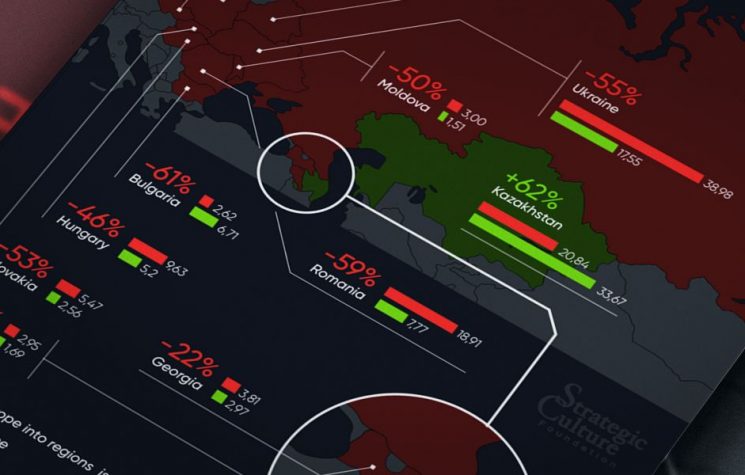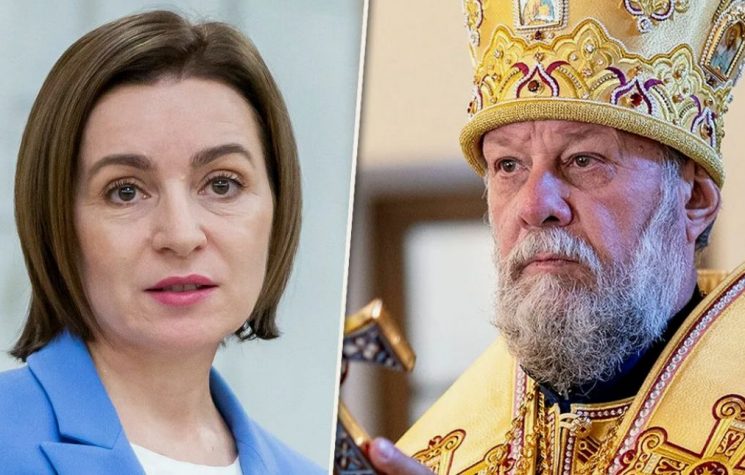Under democratic rules, the Eurocrats and globalists would be soundly defeated at the polls, Raphael Machado writes.
Contact us: info@strategic-culture.su
On October 20, a referendum was held on the Moldovan public’s interest in a constitutional reform to enable entry into the European Union. The “yes” vote won with 50.39%, a numerical margin of about 12,000 votes.
This result was well below expectations, considering all the government’s preparation and mobilization in support of the referendum.
Since Maia Sandu came to power, the goal has been to transform Moldova into a platform and tool for provocation and attack against Russia, similar to how Georgia and Ukraine were positioned in the past.
This had already begun even before Sandu’s election in 2020, with the free operation of Western or pro-Western NGOs in the country. According to various studies, there are around 14,000 NGOs registered in Moldova, a ratio of 1:200, with USAID having a strong direct presence in the country and indirect influence (as a funder of other NGOs).
USAID alone has invested more than $500 million in Moldova over the past 10 years. In terms of general funding, the West supports NGO activities in Moldova with $110 million annually. Besides USAID itself, other main NGO funders include the Open Society Foundation, the governments of Germany and the Netherlands, the NED, and Chatham House.
Among these “Moldovan” NGOs are Promo-LEX, IDIS Viitorul, the EEF (East Europe Foundation), WatchDog.MD, and the EBA (European Business Association), among others. All these groups work in areas like “promoting democracy and human rights” and “countering Russian disinformation.”
In recent years, these and many other NGOs have been actively shaping public opinion through social engineering techniques, aiming to “Ukrainize” Moldovans; that is, to turn Moldovans into Russophobic bots and compliant followers of Washington and Brussels.
With Sandu’s victory, Moldova’s automatic alignment with the West began. To achieve this, the nationalist sentiments of the population are naturally utilized, as the population historically identifies with Romania. However, this connection is manipulated not to foster a Romanian ethno-cultural identity but as a vehicle for the Westernization of Moldova.
When Russia’s special military operation in Ukraine began, Sandu seized the moment to formally apply for EU membership, despite Moldova’s constitution mandating geopolitical non-alignment. Shortly thereafter, the government started imposing censorship on the use of the Russian language in the country, as well as restricting Russian media and symbols, and even arrested her political rival, Igor Dodon. Predictably, Sandu quickly began indebting her country with multi-million euro loans from the European Union.
In the Moldovan narrative, Transnistria, a tiny strip of land with a Russian majority, poses a major threat to “Moldovan sovereignty.” Thus, Sandu decided to sacrifice Moldovan sovereignty in order to defend it. It makes no sense, but that’s how the minds of politicians who have been brainwashed by Western influence work.
Meanwhile, NATO stationed nearly 10,000 troops along the Moldovan border (even though foreign troops are prohibited on its territory), and the country faces frequent anti-government protests from citizens worried that the West might try to turn Moldova into another Ukraine.
This brings us to the referendum on constitutional reform aimed at EU integration. The result, although “victorious,” was disappointing, considering all the money spent promoting the EU, the imprisonment of opposition members, media censorship, and social engineering efforts by NGOs. Even this victory was only achieved through fraud. If you look closely at the referendum maps, you get the impression that the “no” vote won over the “yes.” And that’s exactly what happened: only 46% of Moldova’s residents voted for the reform. The majority of the country’s population voted against EU integration. In all of Gagauzia and the northern regions, opposition to the EU was nearly unanimous, and even in the center of the country, a significant portion of the population voted against joining the EU.
That’s when the “expatriate” population came into play—those who don’t live in the country, don’t share its fate, yet feel entitled to decide on its future. Out of 235,000 diaspora votes, 180,000 supported EU membership. The trick was simple: they increased the number of polling stations in Western countries while in Russia, where 500,000 Moldovans live (half the diaspora and one-sixth of all Moldovans worldwide), they reduced polling stations from 17 to 2, with only 10,000 ballots available.
The conclusion, therefore, is that under democratic rules, the Eurocrats and globalists would be soundly defeated at the polls. But since they don’t really care about democracy, they ensured that only the “right people” could vote.











